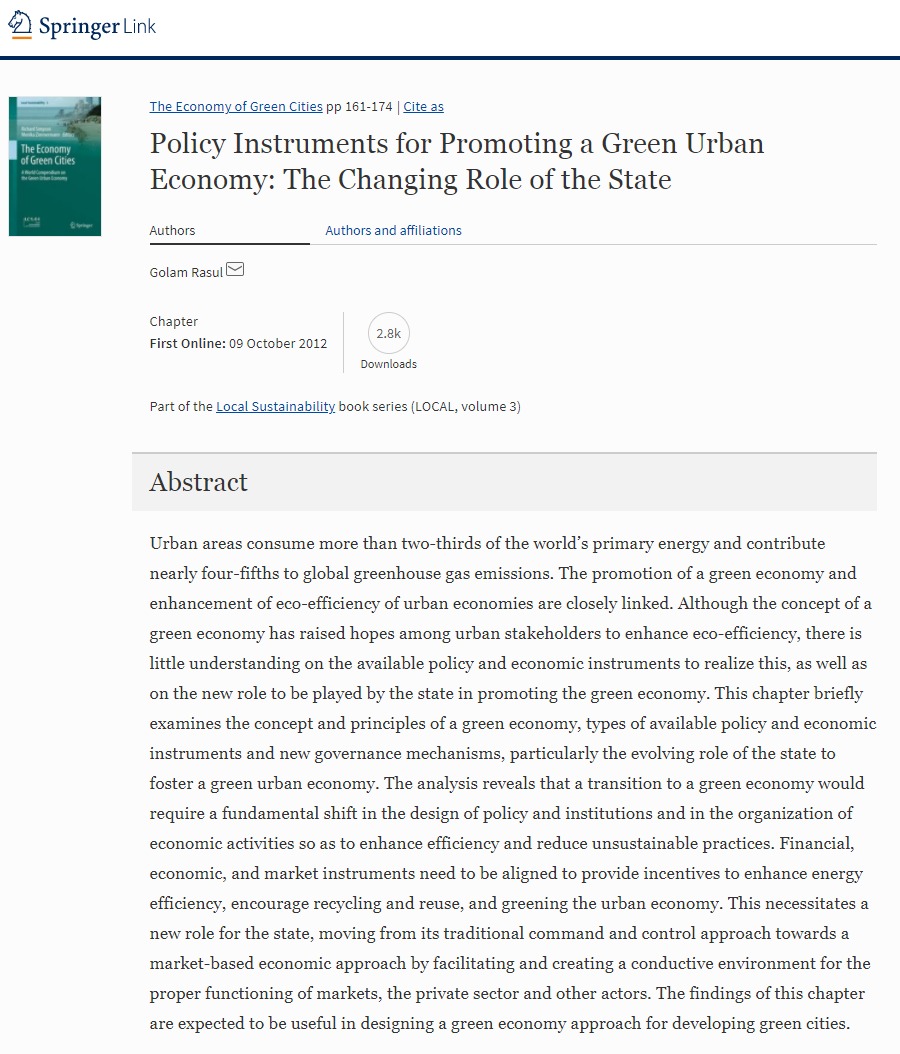
Urban areas consume more than two-thirds of the world’s primary energy and contribute nearly four-fifths to global greenhouse gas emissions. The promotion of a green economy and enhancement of eco-efficiency of urban economies are closely linked. Although the concept of a green economy has raised hopes among urban stakeholders to enhance eco-efficiency, there is little understanding on the available policy and economic instruments to realize this, as well as on the new role to be played by the state in promoting the green economy. This chapter briefly examines the concept and principles of a green economy, types of available policy and economic instruments and new governance mechanisms, particularly the evolving role of the state to foster a green urban economy. The analysis reveals that a transition to a green economy would require a fundamental shift in the design of policy and institutions and in the organization of economic activities so as to enhance efficiency and reduce unsustainable practices. Financial, economic, and market instruments need to be aligned to provide incentives to enhance energy efficiency, encourage recycling and reuse, and greening the urban economy. This necessitates a new role for the state, moving from its traditional command and control approach towards a market-based economic approach by facilitating and creating a conductive environment for the proper functioning of markets, the private sector and other actors. The findings of this chapter are expected to be useful in designing a green economy approach for developing green cities.